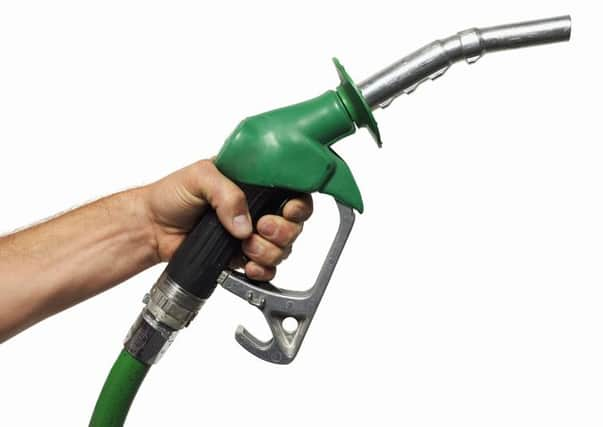Supermarket war on pump prices punishes rural motorists


The AA reports that average UK petrol prices crept back above 130p a litre at the end of April and continue to hover there, with a major disparity between the prices in rural and the largest urban areas having opened up.
A war in which supermarkets have pitted vouchers against rock-bottom pump prices means petrol in many big towns and cities is at year-lows of just under 126p, opening a 4p a litre price gap with small rural towns where major supermarket competition was less fierce.
Advertisement
Hide AdAdvertisement
Hide AdAverage prices may be cheapest in Yorkshire at 129.5p a litre but that rate is up on a month earlier when the average cost was 129.1p a litre.
Countryside campaigners say the high prices unfairly punish rural residents who rely on transport more than their urban counterparts and the impacts of petrol price rises can prove severe.
Leah Swain, chief officer of Rural Action Yorkshire, said: “Remoter rural communities have less access to public transport and even this limited service is under threat with public spending cuts. With an increased reliance on cars the last thing rural residents need is increased petrol costs pushing up the cost of living further.”
Douglas Chalmers, regional director of policy and public affairs at the Country Land and Business Association, said rural businesses suffer too.
Advertisement
Hide AdAdvertisement
Hide Ad“Not only does an increase in the price of fuel make the business less competitive, but it also disadvantages employees who have to drive to work. We have come across examples of companies losing employees following a spike in fuel prices simply because they couldn’t afford the fuel to get in to work.”
High pump prices are costly to young people on low incomes in rural areas, according to Sue Vasey, chief executive of social enterprise Your Consortium Ltd.
She said: “It’s difficult to overstate the challenges that face young people who live in rural communities as they look for work, housing and make plans for the future. The lack of infrastructure – broadband, lack of public transport, etc - has a profound impact on young and old who tend to be reliant on cars to get around.”
Across the UK, the average pump price of petrol is 129.92p a litre, compared to 129.74p in mid-April. Diesel, at 136.17p a litre in mid-May, has barely shifted from last month’s 136.26p.
Advertisement
Hide AdAdvertisement
Hide AdAA president Edmund King said: “While supermarkets, faced recently with worse sales figures when fuel is factored in, have held their fire on pump price increases in cities and major towns, there are signs that some of them and other retailers are getting price-trigger-happy again in rural towns.
“A 2p increase in the wholesale price of petrol through March into April may justify that but, if pump prices stay higher while costs continue to fall back, rural drivers will be tempted to look elsewhere for cheaper fuel.”
The Treasury is waiting to hear whether the European Commission will approve a 5p a litre fuel cut at petrol stations across ten rural communities, including a 14-mile stretch of Wensleydale which includes Hawes, Bainbridge, Askrigg, Aysgarth and West Burton. A Treasury spokesman said it continued to present the case for the scheme “as strongly as possible”.